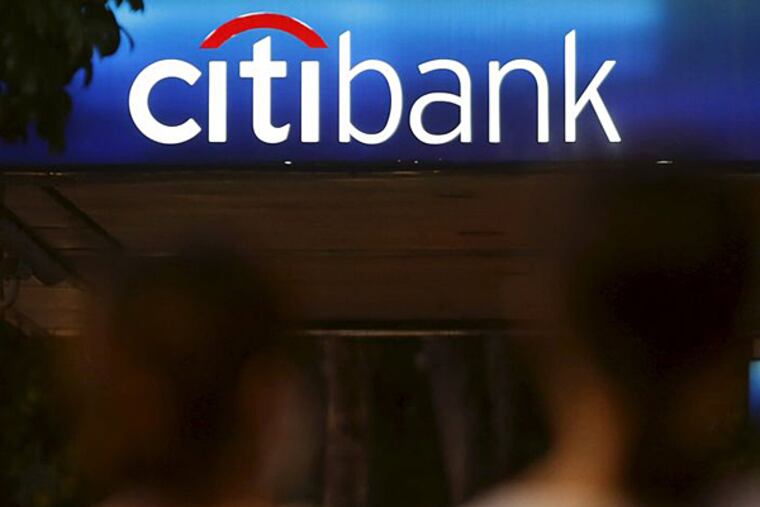Citibank told to give refunds on add-on fees
The "debt-protection" and "credit-monitoring" products pitched as add-ons to cardholders at Citibank and its subsidiaries went by generic-sounding names - products all designed to sound good for you while plain-vanilla enough to draw minimal attention as they recurred month after month.

The "debt-protection" and "credit-monitoring" products pitched as add-ons to cardholders at Citibank and its subsidiaries went by generic-sounding names - products all designed to sound good for you while plain-vanilla enough to draw minimal attention as they recurred month after month.
But the Consumer Financial Protection Bureau said something was rotten in those products sold by the bank or its vendors under names such as Privacy Guard, DirectAlert, IdentityMonitor, AccountCare, Balance Protector, Credit Protector, and Payment Safeguard.
The CFPB, which marked its fourth anniversary Tuesday, announced that it had ordered Citibank and subsidiaries to refund about $700 million to consumers victimized by deceptive marketing, billing, and administration of the add-ons, and to pay $35 million in penalties. About 8.8 million consumer accounts were affected.
If the story sounds oddly familiar, there may be good reason: The Citibank enforcement was the second-largest of 10 actions targeting credit-card companies over the last four years, often for deceptively marketed add-ons.
Some of the vendors named in the consent decree, such as Affinion Group and its Trilegiant Corp. subsidiary, have repeatedly been in the government's crosshairs, including during a 2009 Senate investigation of "mystery charges" on bills. In 2006, 16 states reached a multimillion-dollar settlement with Trilegiant and Chase Bank over a scheme to send consumers "reward" checks without making it clear that cashing them enrolled the consumers in membership clubs, with fees billed to their bank accounts.
So does Tuesday's Citibank case, which covers marketing that persisted at least till 2012, suggest that banks are like the proverbial old dogs - persisting with old tricks because they can't learn new ones?
If only. A better analogy might be to a cat-and-mouse game, only with mice plotting new ways to nibble at your money.
Congress passed 2009's credit-card reforms in hopes of ending a decade's worth of tricks and traps - practices such as the "universal default" and "anytime, for any reason" changes in account terms. It took nearly a decade for those to be labeled unfair and deceptive.
Thankfully, the authors of 2010's Dodd-Frank financial reforms recognized that solving old problems wasn't enough. They established the CFPB, as its progenitor Elizabeth Warren likes to say, to be "a cop on the beat," an agency nimble enough to see new kinds of abuses and guard against them.
A case in point: The CFPB said Tuesday that Citi subsidiary Department Stores National Bank (DSNB), which services cards for retailers such as Macy's, tricked nearly 1.8 million consumers into needlessly paying a $14.95 "expedited payment" fee during collection calls.
The agency says that DSNB reps "failed to disclose the existence of no-cost payment alternatives, including free options for next-day payment," and that it "charged the fee even though it was almost never in the DSNB cardholder's financial interest to ensure same-day payment on their account."
Is there ever an excuse for charging a customer $14.95 for an "expedited payment" - or even the lesser fees that other companies sometimes charge? If so, it's hard to imagine, given that the actual costs and risks of a direct Automated Clearing House (ACH) bank debit are minimal.
Companies charge those fees for one reason: because they can get away with it. Kudos to the CFPB for finally concluding that's wrong.
215-854-2776@jeffgelles